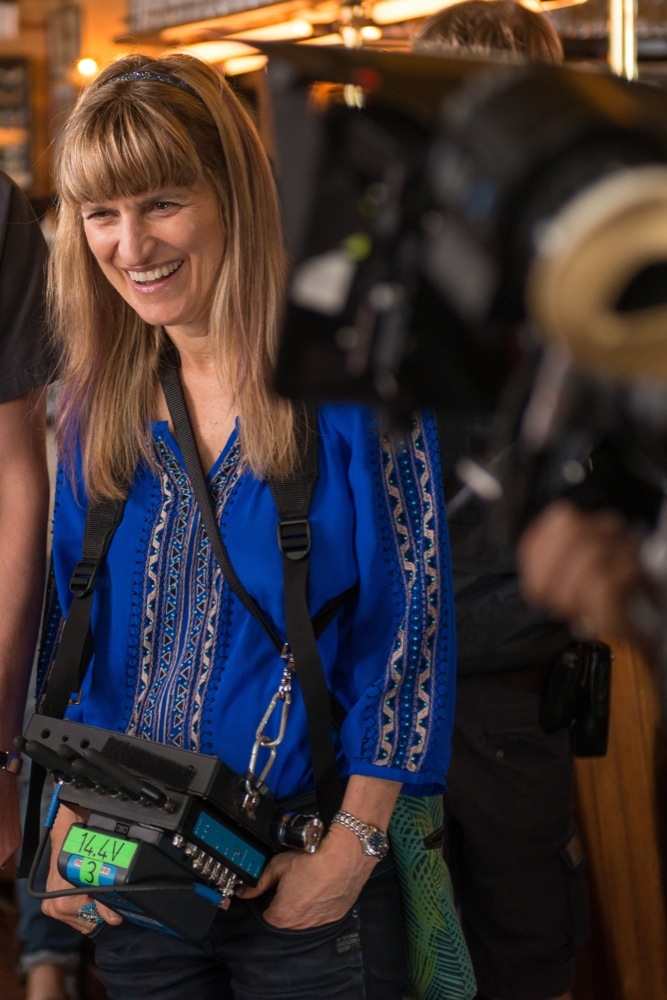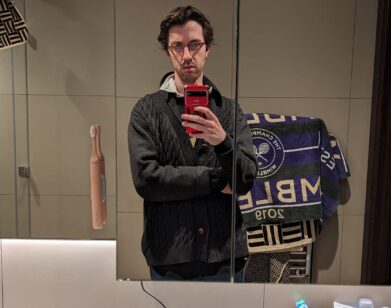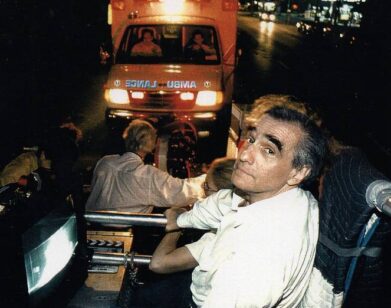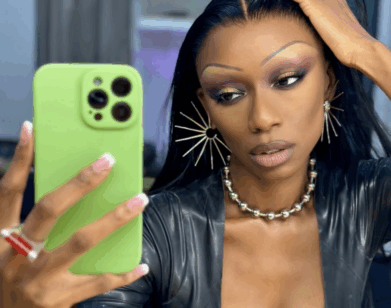Catherine Hardwicke’s Career Evolution
Catherine Hardwicke peppers her conversations with gestures and contorted faces. She speaks dynamically; it’s as much a dramatic presentation as an oral one. She laughs often and heartily. She buzzes with enthusiasm about her projects, her travels, the response to her latest film, and it’s infectious. Here are a few things she’s excited by right now: her new film, Miss You Already; her present and future collaborations with Diane Warren; and the flurry of women speaking out about gender inequality in Hollywood.
With seven films under her belt—and her first directorial credit at age 47—Hardwicke has seen this iniquity at every step of the way, from her debut as a Sundance darling with Thirteen (2003), which she co-wrote with a then-13-year-old Nikki Reed, to 2008’s massive hit Twilight. The disparity between male and female directors isn’t just present at the upper echelons of the craft, she tells us, but it was less understood during the years she spent in relative obscurity. “Now there have been so many commissioned, scientific studies on it,” she says. “Now we understand the shit that we went through earlier that we didn’t understand. I thought, ‘Okay, just me. I’m not working hard enough, or whatever. My movie didn’t make enough money.'”
One such study, a recent investigation by the Center for the Study of Women in Film and Television at San Diego State University, found that women had directed 13 percent of the top 700 films of 2014, and yet just seven percent of the top 250. It’s a minor variation, but one that reveals the conservatism of the industry: The more money attached to a project, the more reluctance to put it in the hands of an untried—often female—director, for concern the studio’s large investment might not yield the anticipated return.
“That’s a fallacy, too,” Hardwicke says. She cites another study (she has a vast sum of scientific evidence to back up her grand statements about women and Hollywood), titled “The Ms. Factor,” that indicates that female-fronted projects and companies have the potential to outperform their male counterparts.
This might be tangential to what is ostensibly the reason for our conversation—her new Drew Barrymore and Toni Collette film Miss You Already—but the movie itself boasts a female writer, director, and co-stars. It passes the Bechdel test often and with enthusiasm. It surveys the friendship between two women, Milly and Jess (Collette and Barrymore, respectively) from primary school in London straight through to adulthood, when Milly receives a diagnosis of an aggressive breast cancer. Though both female leads are married with families, the focus is more on their fraught friendship than their romantic attachments. It could be an easy film to pigeonhole as a “tearjerker” or a “chick flick” (comparisons to Beaches are inevitable), but Hardwicke has a response for those adjectives, too, referencing Sheryl Sandberg’s oft-quoted book Lean In: “These were the labels, the code words for females,” she explains. We caught up with Hardwicke at a café near Central Park just after Miss You Already had screened at the Middleburg Film Festival in Virginia.
KATHERINE CUSUMANO: If you’re good to just jump right in…
CATHERINE HARDWICKE: Dive!
CUSUMANO: I wanted to start by talking about the opening scene because I was really struck by the way that it shows its hand in the first five minutes. You know where this is going to go. I’m wondering where your process for deciding how you’re going to open it comes from.
HARDWICKE: Well, you know that she’s going to have the baby. That was actually the way it was in the script. [Screenwriter] Morwenna [Banks] started with that, “Ahhhh!” That is a very dramatic way to start, right in a very painful childbirth. She’d written some fun jokes, but Drew came up with a lot of fun, off-the-cuff, ad-lib improv lines. The first lines of the movie are all Drew’s improvs. And then I had gone to meet these crazy midwives and all this, and gone through the NHS in London, and they showed me all those positions that you see in the movie, like the ball, the pad, so I added all that weird stuff in.
CUSUMANO: I thought her husband was going to die.
HARDWICKE: You know, a lot of people told me that. I didn’t even realize.
CUSUMANO: Did you have an idea that that was how the script was going to develop—did you know that you wanted to have some improvisation in it?
HARDWICKE: I always like that. We try to create the best script we can, but in that moment, somebody might try something else that just feels good. Some of the best stuff in all my movies has been improv.
CUSUMANO: When you first got the script, you were not super thrilled by the project, right?
HARDWICKE: Well, I was worried. I liked it, of course. The subject is something we all have to face. I’ve faced it with other friends, family members, my father. But I thought, this could just get too sentimental, and so I wanted to toughen it up a little bit. If it’s starting to get too heavy, let’s be sure there’s a good joke zinging in.
CUSUMANO: So how did it evolve? How did you get it to be something that you were really excited about?
HARDWICKE: I think every director kind of has to do that. They call it putting your fingerprints on it. Either you write your own scripts, or you make it your own so you really feel it and understand every scene. Morwenna, the writer, was very open to it—she’s very collaborative, she’s an actor, she’s an improv’er herself. We played with the scenes—Can we deepen this? Can we enrich this? I added a lot to the guys, especially to Dominic Cooper’s character. It was a little bit one-note when I got the draft. His name was Dan, or something like that. Which is not a bad name!
CUSUMANO: [laughs] That says it all. In your process of getting into a script, how closely do you work with the screenwriter, and do you ever get pushback from them?
HARDWICKE: They’ll give me some pushback. If they say, “Hey, man, I put this in here for a reason, and here’s why it works, and it follows through,” then I’m like, okay, do I buy that? Did that convince me? That kind of creative pushback and clash actually makes things better, because if she or he can’t tell me why this really matters, and if I can’t justify it enough, maybe we will cut it out of the script. And leaner might be—is usually—better. If a scene doesn’t work on three levels—it’s not advancing the story, the characters, and telling me something new—then put it in the trash. When we ask you to watch a movie that’s two hours, or an hour and a half, we want it to be great and worthy of your time.
CUSUMANO: Was there something that you were trying to say specifically with the film?
HARDWICKE: One thing that I loved about what Morwenna wrote and then about what the girls did is injections of humor at the darkest moments. How can we look at things and somehow make ourselves laugh, even when shit’s hitting the fan? Finding the joy, the humor, even if it’s gallows humor, in life. Some of the cool lines there were almost from my dad when he was sick. Right toward the end when Toni asks for a vodka tonic, that’s what my dad did the night before he left us. He asked for coconut cream pie, and he wanted it made not here, on this earth, but he wanted it in heaven when he got there. I just loved my dad’s sense of humor and other friends of mine. They just keep living life. They keep being creative, even though Toni is not a saint. She’s not really a hero. She’s just her same, crazy, sometimes worse, self. [laughs]
CUSUMANO: Was there ever any pressure to make her more sympathetic?
HARDWICKE: [Nods] Sometimes people thought she was just too rotten, too narcissistic. Most audiences get much more emotional than I thought they would, because I thought since she’s such a rough character that people wouldn’t really like her. But people have told me that’s why they like her more, because she’s human. I think it’s true that the more sanitized a person is, you can’t really relate to that person.
CUSUMANO: I feel like that narrative is very tired—that narcissist has some sort of ill befall them and they resolve their ways.
HARDWICKE: I think that it’s good that she got worse, almost. [laughs]
CUSUMANO: I read that Toni and Drew actually became really good friends and had this banter going on set.
HARDWICKE: Their families have traveled together. Toni’s family has moved into Drew’s house for, like, three weeks, and stuff. I mean, they got to be great friends. It was crazy. And you’re right—the banter, I mean, a lot of that stuff is in the movie, that they just improv’ed, right there.
CUSUMANO: Your films have done some really amazing matchmaking.
HARDWICKE: Oh, my god, you have no idea. Every film I’ve done has had, like, a crazy—Thirteen, Evan Rachel Wood and Brady Corbet were an item for two years after that movie. In the next movie, Lords of Dogtown, Nikki Reed and Victor Rasuk—two years, they were together after that. Twilight, okay, well, that goes without saying, we know that one. Everything has had something cool. Some of them I can’t even talk about.. [laughs]
CUSUMANO: What is that like, having that happen on your set?
HARDWICKE: It’s pretty fun, except the first two that I mentioned. The characters are playing brother and sister, so as soon as I saw it, I’m like, “No, guys. Please wait till after the goddamned movie, because I don’t want that vibe.” [laughs]
CUSUMANO: I think it’s probably not too much of a stretch to say that you’ve been involved in some pretty different things over the course of your career, from Thirteen, to Twilight, to Miss You Already. Is there something sort of underlying all of those that draws you to them?
HARDWICKE: Part of the truth is, after I made Thirteen, I had so many other projects that I love. I call them the ghosts in my garage, of 20 other movies that were optioned, they were budgeted, we location scouted, I had my heart in it, I storyboarded them, casting, everything—and not one of those went. The seven I’ve done are the ones that somehow got to the finish line. They were not necessarily even my first choices. I think that’s the case for every director. I wish I could say that I had a full-on perfect place or a focused plan or I accomplished every step. Some of them were, at the time, okay, here’s a project that is going to be financed—can you find a way in and add to the script until you fall in love with it? On almost every movie I did. I had to fall in love with them, or you can’t do it.
CUSUMANO: In that hall of things that you’ve been pushing for, is there something in there that you really want to push forward? How long do you stick with something?
HARDWICKE: I ask myself that every day, and so does almost every filmmaker that I know. I went to the Stanley Kubrick exhibit at L.A. County Museum—rooms and rooms of all these amazing films and research Kubrick did, and there are three rooms of films that he never got to make. If Stanley Kubrick couldn’t get those three movies made, I’m not such a loser. [laughs] But I just wrote a new really cool script that I’m like, okay, focus on the new. Don’t look back.
CUSUMANO: What is it about?
HARDWICKE: It’s a true story of the adolescent years, from 13 to 16, or I call the origin story, of the most successful and the most foul-mouthed songwriter in history: Diane Warren. She wrote the Gaga song [for] the video that I did. She wrote songs for Beyoncé, for Justin Bieber, for Cher, she’s just off the charts. I found out what her childhood was like, and it was rough. What does it take inside a person to fight against bullying, running away from home, dropping out of every school, kicked out of schools, and then becoming an uber-Hollywood star?
CUSUMANO: I didn’t realize she was also the most foul-mouthed.
HARDWICKE: Oh, my god, start following her on Twitter. She’s out of control.
CUSUMANO: After Twilight, in 2008, you were sort of at the vanguard of women directing big-budget movies. For seven years having passed, not that much has changed.
HARDWICKE: If not gotten worse, yeah.
CUSUMANO: What have you seen change in those interim years?
HARDWICKE: Obviously it’s not getting better—we can look at the numbers and see. What has changed this year, people are putting a spotlight on it. The American Civil Liberties Union has created an initiative to press all the government agencies to figure out gender discrimination, so I’m actually going to testify in front of a government agency in two weeks, as well as many other directors, to talk about conscious and unconscious gender bias in the industry. Our industry has almost the worst report card for females in any industry. I think this is going to be the year that people are going to have to stop ignoring it. People are writing, people care, people are going to have to figure out how to make this work better. Opening weekend, we’re up against James Bond. If we keep that cycle going where a woman’s movie doesn’t make much money, then they’re use that to justify not making another one. We’re trying to get all the studios and everybody to stand up. This is in the zeitgeist right now. There’s no way around it.
MISS YOU ALREADY COMES OUT THIS FRIDAY, NOVEMBER 6.







